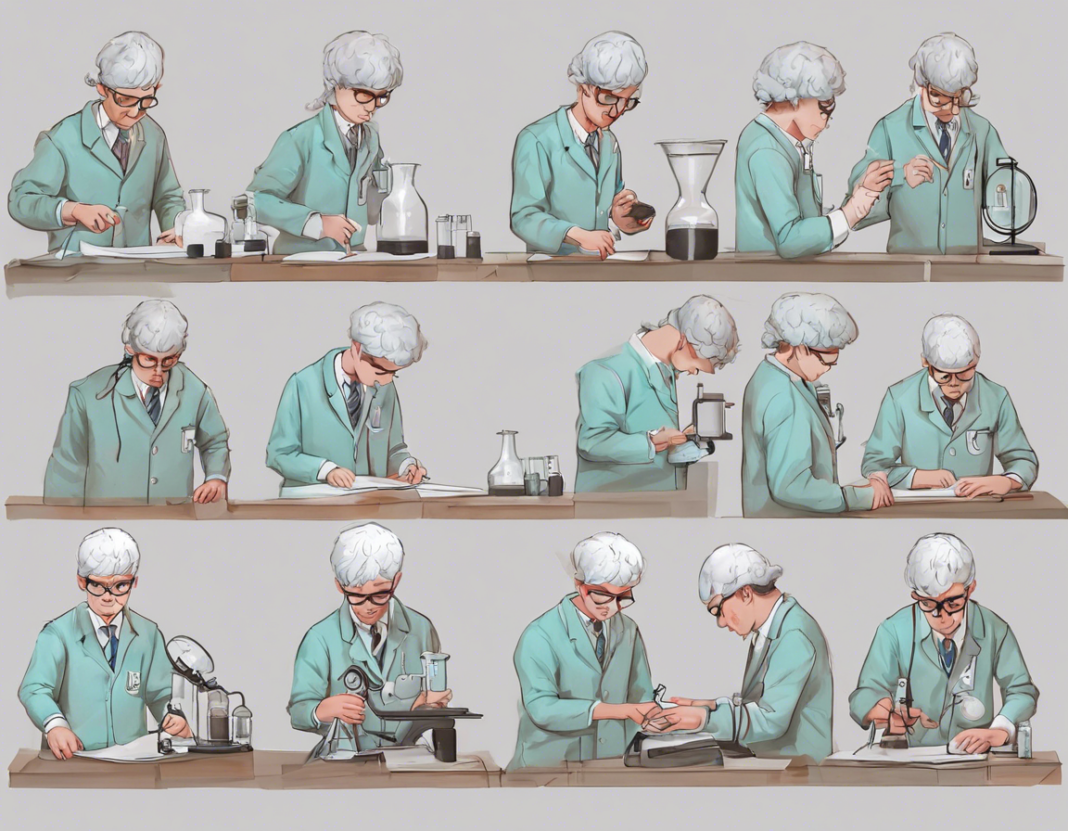Being a scientist is much more than just wearing a lab coat and conducting experiments. It’s a mindset, a way of thinking, and a set of skills that can be developed and nurtured over time. For students in Class 10 who are considering a career in science, understanding the process of becoming a scientist is crucial. In this article, we will delve into the science behind the making of a scientist for Class 10 students.
Understanding the Role of a Scientist
Before diving into the specifics of becoming a scientist, it’s essential to understand what a scientist actually does. A scientist is someone who conducts research to advance knowledge in their chosen field. This research can take many forms, from conducting experiments in a lab to analyzing data to developing new theories and hypotheses.
Building a Strong Foundation in Science
The journey to becoming a scientist often begins in school, where students are introduced to the fundamental concepts of science. Class 10 is a critical year in this journey, as students start to delve deeper into subjects like physics, chemistry, biology, and mathematics. It’s essential for students to pay attention in class, ask questions, and seek help when needed to build a strong foundation in these subjects.
Developing Critical Thinking Skills
One of the most important skills a scientist must possess is critical thinking. This involves being able to analyze information, evaluate evidence, and draw logical conclusions. Class 10 students can begin developing these skills by engaging in hands-on experiments, asking “why” and “how” questions, and challenging their own assumptions.
Cultivating Curiosity and Creativity
Curiosity is at the heart of science. Scientists are constantly asking questions, exploring new ideas, and seeking to understand the world around them. Encouraging curiosity and creativity in Class 10 students can help fuel their passion for science and inspire them to pursue a career in the field.
Embracing Failure and Resilience
Failure is an inevitable part of the scientific process. Experiments don’t always go as planned, hypotheses are sometimes proven wrong, and setbacks are common. Class 10 students must learn to embrace failure as a learning opportunity and develop resilience in the face of adversity. This can help them persevere through challenges and setbacks on their journey to becoming a scientist.
Acquiring Practical Skills
In addition to theoretical knowledge, scientists also need practical skills to conduct experiments, analyze data, and communicate their findings. Class 10 students can begin acquiring these skills by participating in science fairs, conducting independent research projects, and seeking out mentorship opportunities.
Choosing the Right Career Path
As Class 10 students prepare to choose their career paths, it’s essential for those interested in becoming scientists to consider their options carefully. There are many different fields of science to explore, from biology to physics to engineering. Students should research different career paths, talk to professionals in the field, and consider their own interests and strengths when making this decision.
Pursuing Higher Education
Most careers in science require a higher education degree, whether it’s a bachelor’s, master’s, or doctorate. Class 10 students who are serious about becoming scientists should start researching universities and colleges that offer strong science programs, preparing for entrance exams, and seeking out scholarship and internship opportunities.
Frequently Asked Questions (FAQs)
1. How early should I start preparing to become a scientist?
It’s never too early to start cultivating an interest in science. Class 10 is a great time to begin exploring different scientific disciplines and developing your skills.
2. Do I need to be good at math to become a scientist?
Mathematics is a fundamental tool in science, so having a strong foundation in math is essential for aspiring scientists. If you find math challenging, don’t worry – with practice and dedication, you can improve your skills.
3. Can I become a scientist if I don’t have access to a laboratory?
While having access to a laboratory can be beneficial, it’s not a requirement to become a scientist. There are many opportunities for conducting research outside of a traditional lab setting, such as participating in science fairs, joining research programs, and conducting experiments at home.
4. How can I stay motivated on my journey to becoming a scientist?
Staying motivated can be challenging, especially when faced with setbacks and obstacles. Surround yourself with supportive peers and mentors, set achievable goals, celebrate your successes, and remember why you chose to pursue a career in science in the first place.
5. What are some qualities of a successful scientist?
Successful scientists are curious, persistent, analytical, creative, and open-minded. They are passionate about their work, thrive on challenges, collaborate effectively with others, and communicate their findings clearly and concisely.
In conclusion, the path to becoming a scientist for Class 10 students is a challenging yet rewarding journey. By building a strong foundation in science, developing critical thinking and practical skills, embracing curiosity and resilience, and making informed decisions about their career paths, students can set themselves up for success in the exciting and dynamic world of science.






